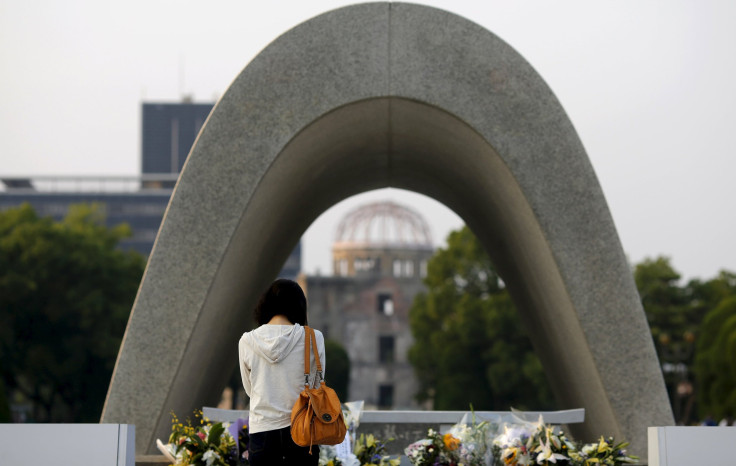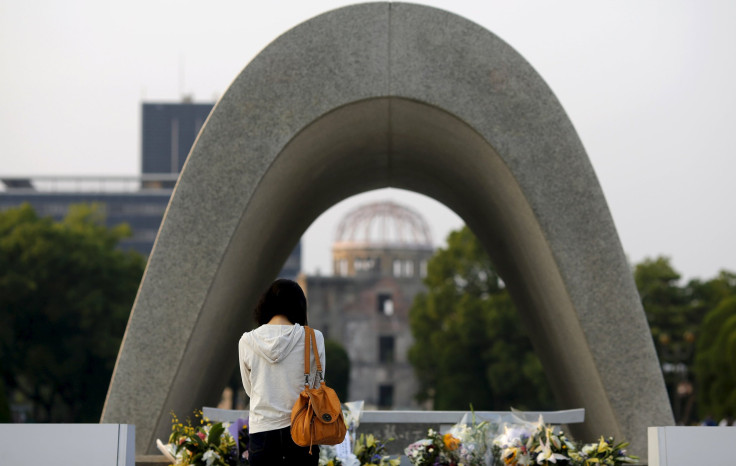Hiroshima Atomic Bombing 70th Anniversary Marked With Solemn Ceremony, Calls For Nuclear Disarmament

Residents of the Japanese city of Hiroshima on Thursday solemnly marked the seventieth anniversary of the atomic bomb attack on the city during World War II. Japan's Prime Minister Shinzo Abe used the occasion to call for worldwide nuclear disarmament.
Bells tolled, thousands bowed their heads in prayer and doves were released into the sky, at a ceremony attended by 40,000 people, including representatives of more than 100 countries.
"Seventy years on I want to reemphasize the necessity of world peace," Abe said in his speech, according to a BBC report, adding that the bomb had not only killed thousands of people in Hiroshima but also caused unspeakable suffering to survivors.
Hiroshima Mayor Kazumi Matsui added: "To coexist we must abolish the absolute evil and ultimate inhumanity that are nuclear weapons. Now is the time to start taking action.”
The ceremony was also attended by U.S. Ambassador to Japan Caroline Kennedy, and U.S. Under Secretary for Arms Control and International Security Rose Gottemoeller, who is the most senior American official sent from Washington to the annual memorial, the Guardian reported.
Many of those in attendance at the ceremony used the occasion to call for world peace. "My grandfather died here at that time and I keep wondering what he felt then," Tomiyo Sota told Reuters. "He was still 21 years old and it pains me to think he died so young."

Survivor Setsuko Thurlow (née Nakamura) was 13 when the bomb was dropped on Hiroshima. She told the BBC that in the aftermath of the bombing, she saw people “covered with blood their skin and flesh burned and peeling off... Some were carrying their eyeballs in their hands.”
U.S. bomber, the Enola Gay, dropped the first atomic weapon ever to be used in wartime on Hiroshima at 8:15 a.m. on Aug. 6, 1945. The bombing, in conjunction with another atomic attack on the city of Nagasaki two days later, are widely credited with bringing the war in the Pacific to a swift conclusion.
The bombings are still the subject of much historical debate, however, with critics arguing that they were unnecessary, as Japan would likely have surrendered soon. Others, however, have characterized such claims as “far-fetched.” In the aftermath of the war, Japan was remade with a pacifist constitution that eschewed force except in defense of the homeland.
However, in recent months, Japan has seen the renewal of a fierce national debate following Abe's ambitions for the country's military on the international stage, and his government's move to push security bills through parliament that could send Japanese troops into conflict for the first time since World War II, sparking large protests around the country.
© Copyright IBTimes 2024. All rights reserved.





















